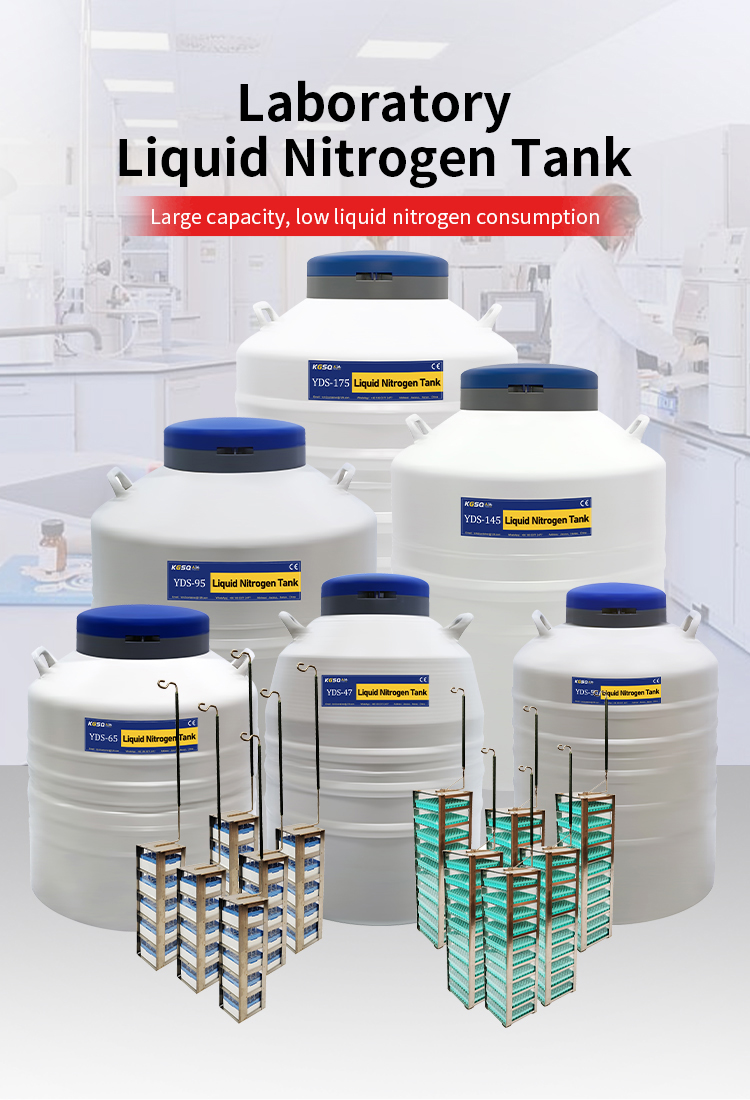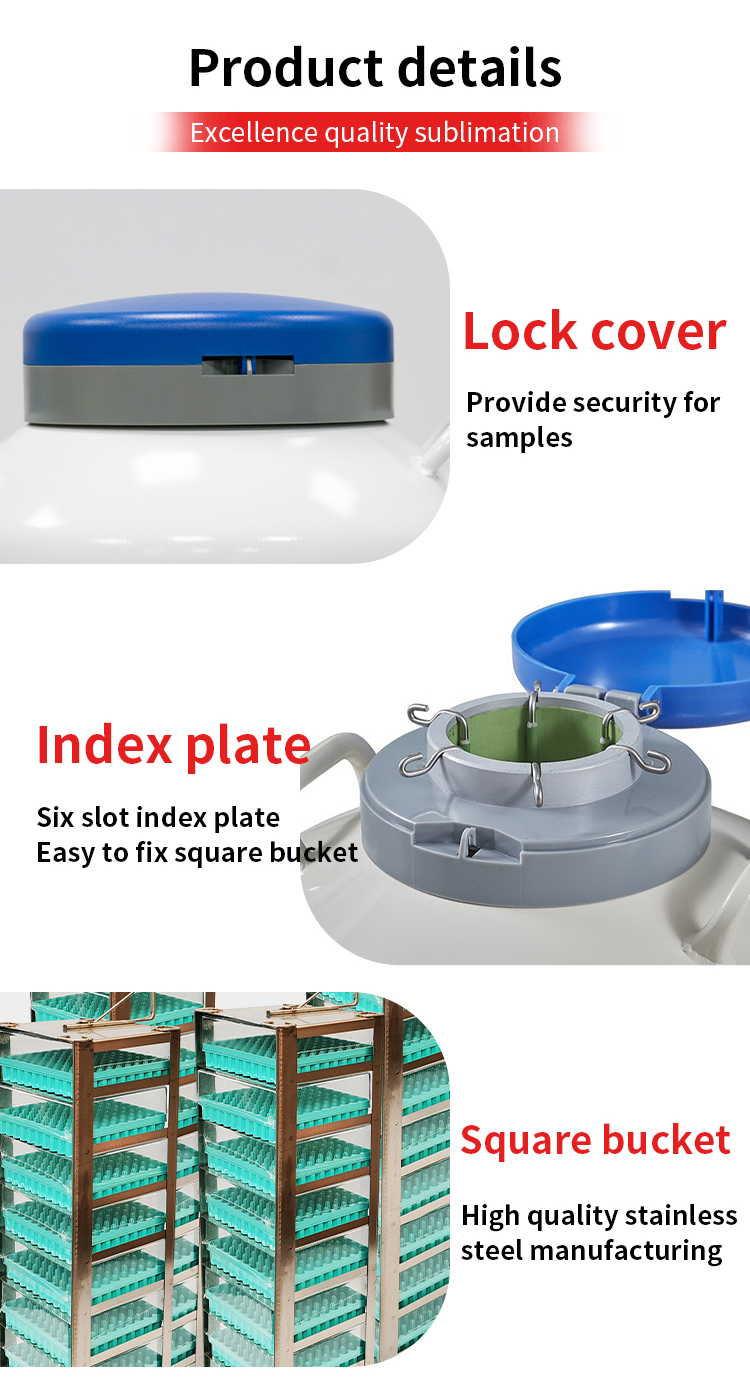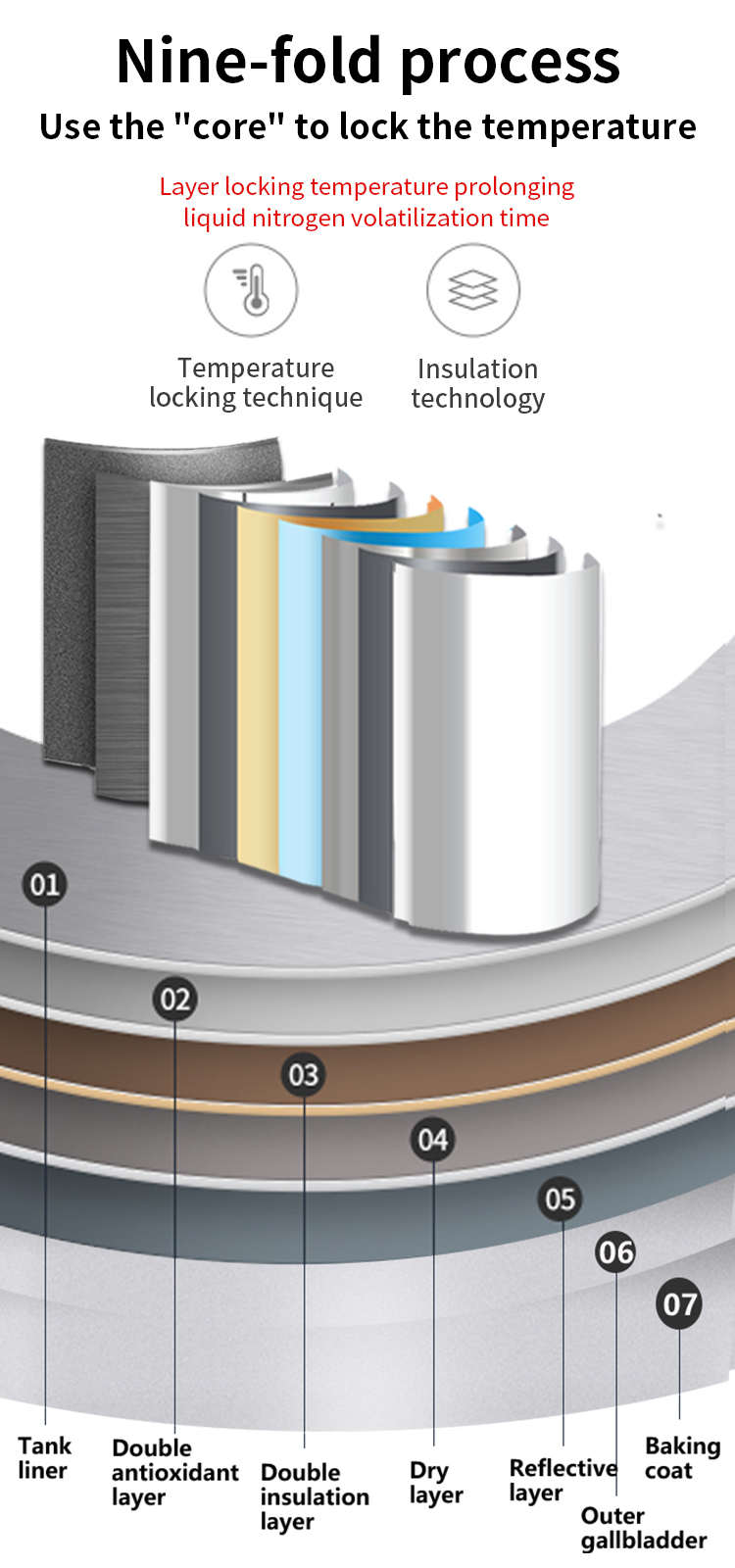The liquid nitrogen tank is a low-temperature container that can only store liquid nitrogen and cannot store other liquids. It is mainly composed of inner and outer gallbladders, neck tubes, neck plugs, and buckets. They play different functions in different positions. So what functions does our liquid nitrogen tank neck plug have? What will happen if we accidentally forget to cover the neck plug during operation?
You should know that the neck plug is made of polyurethane foam and is used to block the neck of the liquid nitrogen container to reduce the evaporation of liquid nitrogen and play a role in preserving liquid nitrogen. It is light and pressure-free, not easy to break, does not fall off, and can also fix the bucket without adsorbing liquid nitrogen.
If you forget to cover the neck plug during use, there will be three situations, the third situation is dangerous.
1. Liquid nitrogen volatilizes in large quantities
Liquid nitrogen is a low-temperature liquid that is easily volatile at -196°C. It will evaporate more quickly when exposed to heat. The liquid nitrogen tank is designed to better isolate heat, so that liquid nitrogen can be stored for a long time. The neck plug is made of polyurethane foam, which is not easy to break and has good thermal insulation properties and can isolate most of the heat.
If you forget to cover the neck plug, hot air will enter through the mouth of the tank and accelerate the evaporation of liquid nitrogen. If there are samples stored in the tank, the safety of the samples will be affected and the samples may become inactive.
Therefore, when we find that we have forgotten to cover the neck plug, we must first measure the height of the liquid nitrogen in the tank, refill it, and then cover the neck plug.
2. Liquid nitrogen will be contaminated
Another function of the neck plug is to prevent impurities or bacteria from falling into the tank. If you forget to cover the neck plug, bacteria and impurities will inevitably fall into the liquid nitrogen tank and contaminate the liquid nitrogen and stored biological samples.
3. Decreased indoor oxygen content
Usually, liquid nitrogen tanks are placed indoors. Liquid nitrogen will volatilize more quickly when heated. If the room is not well ventilated, the nitrogen content in the air will increase and the oxygen content will decrease, which may cause the risk of "suffocation". Therefore, Liquid nitrogen tanks stored indoors must be well ventilated.
If you have any needs, please contact KGSQ liquid nitrogen tank:
Email: tcln2container@126.com
WhatsApp: +8618903712477
Official website:
https://www.cryogenicstoragetank.com/YDS-Series-with-Racks-Boxes.html





